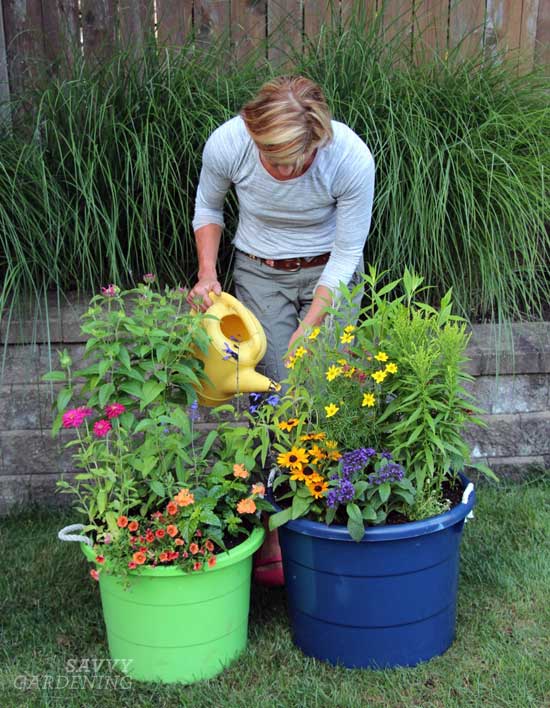
Healthy gardening is more than just about fresh produce. Growing and cultivating your own vegetables will give you fresh vegetables that are free from pesticides. Ask your doctor first if you're unsure about which type of garden would be best for you. You can also learn more about gardening by collecting photos of healthy plants. A healthy plant will produce more yield, have less pests and be more resistant to diseases.
In addition to the health benefits that gardening offers, gardening's physical activities promote sun exposure. Sun exposure is the best way to get vitamin D. This vitamin can impact nearly one thousand genes, and every cell in your body. Studies have shown that vitamin D can improve the health of your heart, bones, and digestive system. Some studies suggest that gardening can even increase your self-esteem. The exercise and mental benefits are hard to ignore. Why would you want to spend so much time in the backyard?

A 2006 study showed that regular gardening could reduce dementia risk by 36 percent. The 16-year-long research involved more than 2,800 participants. Participants who regularly garden helped them reach the 'zone, which is similar to yoga and meditation. While there is no specific connection between gardening and dementia, it is clear that gardening provides many benefits. There are many benefits to healthy gardening. They likely combine a variety of aspects.
Apart from its physical benefits, gardening also has mental benefits. Recent research has shown that gardening can be more relaxing than any other activity and helps to combat stress. Researchers divided the subjects into two groups. Each group was required to read for 30 minutes or work in the garden. The gardening group showed lower levels of cortisol, was happier, and had less stress than the reading one. The study also showed that the gardening group had fewer complaints about stress and anxiety.
Gardening is a part of a healthy lifestyle that helps you lose weight, improve your mood, and help you feel happier. Additionally, gardening allows you to be outside in the fresh air and interact with other gardeners. You will also experience a decrease in stress and a better immune system. It can help you combat lifestyle diseases such depression, anger, or stress. Finally, gardening can also increase the value of your property. Gardening can also help you save money on groceries.

To minimize the risk of injuries, make sure to wear gloves and safety goggles while gardening. Work outside in sturdy shoes and long trousers. Be sure to read the instructions carefully and keep children away from tools. Take frequent breaks, drink plenty of water, and remember to rest often. Healthy gardening provides many benefits, including a source of antioxidants. It also enhances the body's ability and grip. The long-lasting benefits of healthy gardening are endless.
FAQ
Which vegetables are best to grow together?
It is possible to grow tomatoes and peppers together, as they like the same soil conditions and temperatures. They work well together as tomatoes need heat to ripen and peppers need lower temperatures for optimal flavor. You can try planting them together by starting seeds indoors six weeks before transplanting them outdoors. When the weather is warm, transplant the pepper and tomato plants outside.
What is the first thing to do when starting a garden?
Preparing the soil is the most important step in starting a garden. This includes adding organic matter like composted cow manure, grass clippings leaves, straw, and so on, which will help to provide plant nutrients. Next, plant seeds or seedlings into prepared holes. Finally, water thoroughly.
How often should I water indoor plants?
Indoor plants need watering once every two days. Humidity levels can be maintained inside the house by watering. Humidity is essential for healthy plants.
Statistics
- Most tomatoes and peppers will take 6-8 weeks to reach transplant size so plan according to your climate! - ufseeds.com
- As the price of fruit and vegetables is expected to rise by 8% after Brexit, the idea of growing your own is now better than ever. (countryliving.com)
- 80% of residents spent a lifetime as large-scale farmers (or working on farms) using many chemicals believed to be cancerous today. (acountrygirlslife.com)
- According to a survey from the National Gardening Association, upward of 18 million novice gardeners have picked up a shovel since 2020. (wsj.com)
External Links
How To
How to Grow Tomatoes
Tomatoes is one of the most loved vegetables today. They are simple to grow and offer many health benefits.
Tomatoes require full sun and rich soil.
Tomato plants love temperatures above 60°F.
Tomatoes like lots of air circulation around them. You can increase the airflow by using trellises, cages, or other devices.
Tomatoes need regular irrigation. If you can, use drip irrigation.
Tomatoes do not like heat. Keep the soil at 80°F.
Plenty of nitrogen-rich fertilizer will make tomatoes grow. Apply 10 pounds of 15-15-10 fertilizer every two weeks.
Tomatoes require approximately 1 inch of water each week. This can be applied directly to the leaves or via a drip system.
Tomatoes are prone to diseases such as blossom end rot and bacterial wilt. Make sure to drain the soil thoroughly and use fungicides.
Aphids and whiteflies are pests that can be harmful to tomatoes. Spray insecticidal shampoo on the undersides.
Tomatoes can be used in many ways. Make tomato sauce, salsas, ketchups, relishes, pickles, among other things.
Growing your own tomato plants is a wonderful experience.